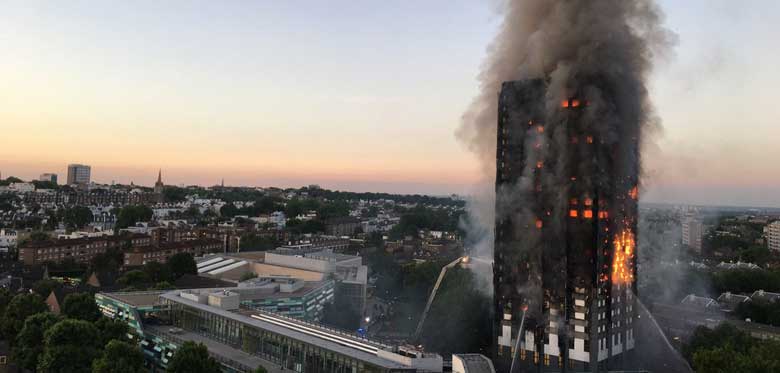This September, thousands of students will return to campuses across the UK with a good many of them – particularly those entering their first year of study – taking residence in student accommodation.
With the unprecedented demand for university places over the past two decades, many institutions have invested heavily in student accommodation, either on campus itself, or in the surrounding areas. In particular, high-rise student housing blocks in university towns and cities have sprung up to provide a ‘boutique’ or even ‘luxury’ student experience. In 2015, £5.8bn was spent in the ‘student housing market’.
However, as the tragic event of Grenfell Tower made clear, many new or recently renovated housing blocks across the UK have been constructed on flawed designs and using potentially dangerous materials. Student accommodation has not been immune.
In July, one provider said that it expected to spend up to £2m replacing cladding on its blocks in the wake of the Grenfell disaster. Accommodation in Newcastle, Bristol, Edinburgh, London, Portsmouth and Leeds is believed to feature cladding that is unsafe.
For students, there is understandable concern that their accommodation may be affected and, potentially, unsafe. Some may be reluctant to move in or worried that they may be asked to leave while remediation work takes place. Some may wonder what rights – if any – they have in this regard.
Do I have to move into the accommodation?
No, nobody can force you to physically move in against your will, but you may still be liable to pay rent. If you have already signed your tenancy agreement – and depending on what the terms are – it is highly likely you have no right to revoke that agreement.
In other words, whether you move in or not, you still have a legal contract under which you must pay rent until the tenancy agreement ends.
If you find yourself in this position, speak to your landlord – either the university or private provider – as soon as possible. It may be possible for your landlord to waive the rent entirely, or until they have found another tenant for your accommodation.
What if I do move in and I’m worried about safety?
Again, it is important to speak to your landlord as soon as possible. However, if you have signed your tenancy agreement, there is no obligation for your landlord to remove any cladding, even if it might pose a fire risk. This is because you have signed the agreement to rent the accommodation, with the cladding present.
If you have genuine grounds to believe the property is unsafe and your landlord refuses to do anything, you should contact the local authority’s Environmental Health Team. They will investigate, visit the property and carry out an assessment of any risks.
If they find that the property is unsafe, the local authority has the power to force the landlord to undertake the appropriate remedial work.
What if work is being carried out and I can’t move in?
If your accommodation is being altered – either to remove cladding or improve safety – your landlord should offer alternative accommodation to you. The accommodation should be of a reasonable standard, but it does not have to be identical.
If you will be unable to move into your choice of accommodation for a long period of time, it may be worth considering if there are any other properties you would rather live in and discussing the option of ‘surrendering’ your tenancy agreement. This would bring your agreed contract to an end sooner than both you and your landlord had originally agreed.
What if I’m asked to move out of a property, during my tenancy, so work can be carried out?
In this case, you will need to work with your landlord to agree the most convenient option for you. It may be that your landlord will propose alternative accommodation for that period of time.
If the work is likely to take a significant amount of time, consider asking your landlord if you can remain in the alternative accommodation for the rest of the academic year to avoid disruption to you. You could also consider if there is any other accommodation you would rather live in and ask the landlord if you can surrender the tenancy agreement.
If you refuse to move out of the property, your landlord may apply to the court to force you to leave.
What else do I need to know?
It is important to have an open dialogue with your landlord and to make clear agreements as to what will happen in each of the above situations.
Remember, don’t be afraid to ask questions and make sure to keep any correspondence or records of conversations – including who was present, when they took place and what was agreed - in hard-copy, in a safe place.
Where an agreement has been reached, make sure a record is kept in writing. You can ask your landlord for this, or send an email with relevant details which your landlord should acknowledge.
If all else fails, be sure to get appropriate legal advice. Consult a specialist housing solicitor, who will be able to give you some initial guidance as to your rights and the options available to you.


